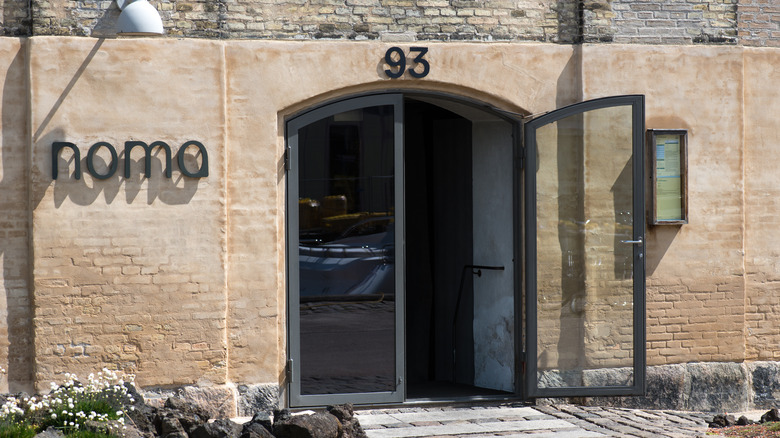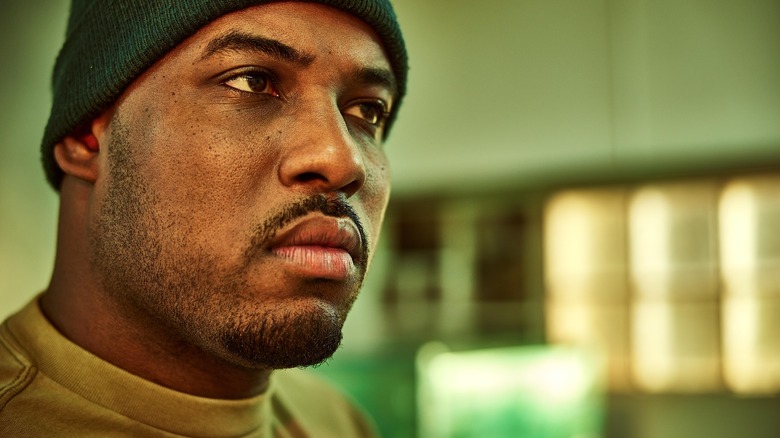What The Bear Season 2 Does And Doesn't Say About Noma
This article contains SPOILERS for season 2 of The Bear.
Noma has been listed as the world's best restaurant five different times and has three Michelin stars. So, it makes sense that season two of "The Bear", an American dark comedy about the realities of the culinary world that is now available to stream on Hulu, would make reference to one of the most notorious fine dining establishments in the world, Noma. Or does it?
Noma, which plans to close in 2024 citing the unsustainability of fine-dining, has been served as an infamous symbol of the double-edged sword of fine dining culture, with its many awards and accolades often mentioned in the same breath as tales of ghastly treatment of kitchen interns, who put in grueling hours for, up until recently, no money. You could definitely argue that this culture is alluded to in "The Bear." In the fourth episode of season 2, Marcus, the passionate pastry chef at Original Beef, follows his hunger for greater culinary knowledge to Copenhagen, Denmark — where Noma is located — to stage at a restaurant run by a pal of chef Carmy that has some uncanny similarities to the real life restaurant.
The themes display in the show are more than just a love letter to the back of the house. They're a commentary on all that is good and bad in professional kitchens: the triumphs, the abuse, the creativity, the classism, and the untempered hero worship, and the apparent references to Noma only emphasize this.
The show contains questionable references to the restaurant
While in Denmark, Marcus' day starts at 5 a.m., joined by a brigade of international cooks who've flocked to this gastronomic mecca are militant in their precision and dedication. Though feeling a bit out of his element, Marcus soon takes to the culture and blooms like gelatin destined for a dessert. While Marcus is eager to learn and happy for the placement that exposes him to skill, technique, and foods, one gets the feeling that this unnamed restaurant is bordering on cult-like. Delicate manipulation of food with tweezers is elevated to an art form, and those who haven't mastered it are deemed worthy of derision. Perfection is so valued that it seems that the joy of cooking and good food is vacant at this nameless restaurant, replaced by a soulless sterility. And it may sound a little familiar.
Are we to assume this is Noma? It isn't made clear, but these references make it seem similar, especially when Marcus visits a garden with the restaurant's sign nearby. Largely though, one could argue this is a pastiche of internationally-lauded restaurants that have a certain cult of personality built around their iconoclastic chef and singular brand. A decade or so ago, Marcus would have been in Spain crafting mandarin air in a kitchen strongly-hinted to be El Bulli.
There is another dimension to this episode, though. Chef Luca doesn't seem to be as famously-mercurial as Redzepi. Instead, he takes Marcus under his wing with encouragement for him to follow his passion, not judge himself against others, and to get out of the kitchen and taste the world. This may or may not be Noma, but it's the restaurant that Marcus needs to continue his journey.

